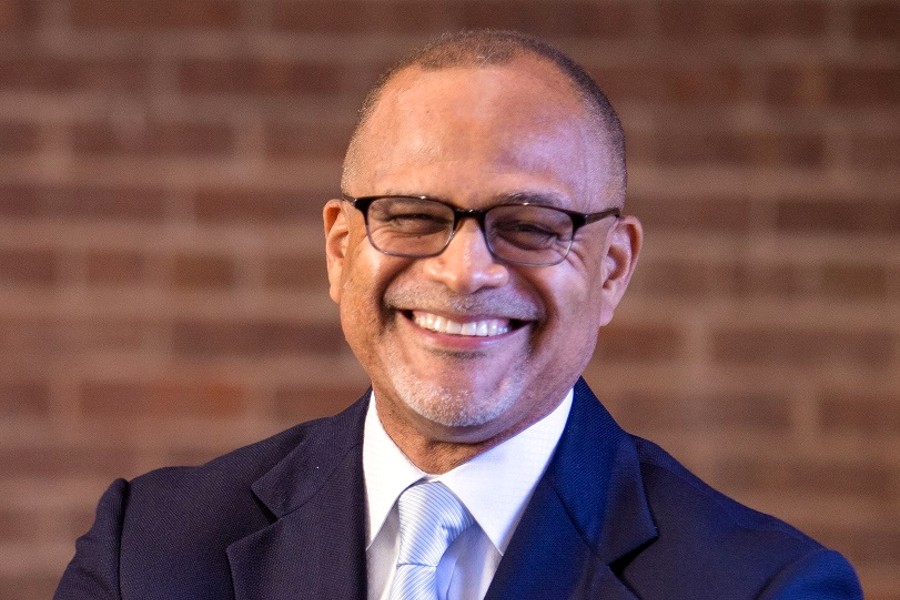
A new survey released today by the American Edge Project (AEP) reveals that U.S. (from Harlem to Hawaii) and European voters remain aligned on common values.
In addition, they share a mutual concern about the growing technological threats posed by China and Russia.
The United States and Europe have a long history of cooperating on a wide range of issues of mutual interest – and technology has been no exception. However, in recent years, a host of controversial regulatory and enforcement proposals have emerged, threatening to jeopardize the scope and focus of transatlantic cooperation.
“…the vast majority of voters on both sides of the Atlantic want to jointly defend their shared values against foreign adversaries and avoid onerous regulations that threaten the economic and security benefits of today’s internet technologies.”
This makes AEP’s new survey timely – it reveals that the vast majority of voters on both sides of the Atlantic want to jointly defend their shared values against foreign adversaries and avoid onerous regulations that threaten the economic and security benefits of today’s internet technologies. To do so, they are calling for a coalition of democratic nations to lead the way and set the rules and standards for the internet.
“This survey paints a clear picture: voters on both sides of the Atlantic are united in their desire for U.S. policymakers to work alongside our European allies to safeguard our technological edge, defend our interests, and advance our values,” said Doug Kelly, CEO of AEP. “The transatlantic alliance has served as a bulwark for freedom and prosperity for nearly a century. With digital autocracies, namely China and Russia, now on the rise, it is imperative that leaders in Europe and the U.S. stand together in defense of our shared values and global leadership in technology and innovation.”
The poll surveyed 1,005 registered voters in the U.S., 1,011 registered voters in the U.K., 1,020 registered voters in France, 1,003 registered voters in Germany, and 500 voters in Belgium (with Brussels considered the de facto capital of the European Union) between April 26 and May 5, 2023. The survey is a continuation of research by the American Edge Project that began in 2021 and continued in 2022, with similar polls surveying comparable audiences.
To read the full research and analysis from this study, see the memo and the presentation.
Key findings include
U.S. and European voters share common values – and view China and Russia warily.
Sentiment across the surveyed countries indicates that voters believe the Western alliance has strong shared values. Both sides of the Atlantic agree that “Europe and the U.S. should work together to defend our shared values” (82% in U.S., 79% in Europe). Both sets of voters believe the other “allows for a free and open internet” (85% in U.S., 79% in Europe) and “allows for freedom of speech, even for ideas you disagree with” (79% in U.S., 73% in Europe). The shared values stand in stark contrast to values exhibited by China and Russia. By a nearly six-to-one ratio, Americans believe Europe shares its values more than either China or Russia does. Similarly, U.K. voters are nearly nine times as likely to say the U.S. shares their values compared to China and Russia; French and German voters are seven times as likely; and Belgian voters are three times as likely.
Voters are deeply concerned about China and Russia’s growing technological influence and the economic and security threats their gains pose.
An overwhelming number of voters in the U.S. and Europe agree that the growing technological influence of China and Russia is a threat to their country’s national security (81% in U.S., up five points from last year; 74% in Europe, up two points from last year) and their economy (80% in U.S., up four points from last year; 73% in Europe, up three points from last year). They are also alarmed by the prospect of Chinese and Russian organizations launching political influence campaigns in the U.S. (90% in U.S., 86% in Europe) and in Europe (89% in U.S., 88% in Europe). Due to this growing influence, Western voters are troubled about increased threats from Russia and China – over nine in 10 are concerned about Russian cyberattacks on their country’s critical infrastructure (95% in U.S., up six points from last year; 92% in Europe, equal to last year) and Chinese cyberattacks on their country’s critical infrastructure (94% in U.S., up four points from last year; 93% in Europe, up two points from last year).
Western voters are highly concerned about domestic tech regulation and its negative effect on competition with China.
Voters across the Atlantic oppose regulations that would undermine American and European technology and advantage China. They oppose heavily regulating their own technology sectors, hurting their ability to compete with China’s technology sector (87% in U.S., 78% in Europe), and are concerned about Europe and the U.S. passing laws that more heavily regulate each other’s technology sectors, which would create a vacuum for China to fill with its technology (86% in U.S., 79% in Europe).
An overwhelming number of U.S. and European voters want greater technological cooperation with each other to guard against China and Russia’s growing influence.
Voters surveyed across the Western alliance strongly agree that the U.S. and Europe must cooperate more closely to protect and strengthen their technological edge against foreign threats. They agree allies in the U.S. and Europe should work together against common threats (84% in U.S., 80% in Europe), and against common adversaries (84% in U.S., 79% in Europe). Specifically, they agree that “Europe and the U.S. should work together to strengthen their defenses against Chinese digital threats, such as data theft, technology espionage, and forced technology transfers for foreign businesses operating within their borders” (83% in U.S., 80% in Europe); that the “EU and the U.S. should work together to preserve the economic, national security, and other benefits of today’s internet and related technology” (83% in U.S., 79% in Europe); and that “Europe and the U.S. should work together to build stronger digital infrastructure” (84% in U.S., 79% in Europe). To preserve today’s internet, voters across the Western alliance increasingly want a coalition of democratic nations to set the rules and standards for the internet: a U.S.-EU coalition is preferred by 51% in the U.S., up by six points from last year; it is preferred by 47% in Europe, up by three points from last year. In comparison, just 6% of U.S. voters and 3% of European voters want China to set internet rules and standards.
The Bottom line
As threats continue to rise from China and Russia, U.S. and European voters want their governments to strengthen the Western alliance and work together to defend against common adversaries and preserve the benefits of modern internet and technology. They believe the U.S. and Europe share a common set of values – which China and Russia oppose – and that stronger multilateral ties are necessary to secure their technological edge, and the economic and security benefits it delivers.
Background
The American Edge Project is a coalition of domestic organizations representing a cross-section of U.S. innovators who are dedicated to telling the story about technology’s positive influence on America’s economy and the vital role innovation plays in our society. Former New Mexico Governor Susana Martinez, former U.S. Representative Chris Carney, and former Federal Election Commission Chairman Bradley A. Smith are directors of the American Edge Project. AEP’s National Security Advisory Board is comprised of Former White House Counterterrorism and Homeland Security Advisor Frances Townsend; retired four-star General Joseph F. Dunford Jr., United States Marine Corps (USMC), who served as former Chairman of the Joint Chiefs of Staff; and former Acting Director of the Central Intelligence Agency (CIA), Michael J. Morell. Former U.S. Senators Saxby Chambliss (R-GA) and Kent Conrad (D-ND) serve as Co-Chairs of the Project’s Economic Advisory Board. Former U.S. Representative Greg Walden (R-OR) and Former U.S. Representative Loretta Sanchez (D-CA) serve as Co-Chairs of the Project’s Open & Accessible Internet Advisory Board.
Visit AmericanEdgeProject.org for more information.
- The Rise And Fall Of 65 West 128th Street: A Microcosm Of Harlem’s History
- From Rainforest To Asphalt: Amazon’s Sustainability Report Struggles To Navigate Harlem’s Future
- Broom Drill In A Harlem Church: A Unique 1882 Tradition
- Wells Fargo Shares Economic Impact From Open For Business Fund
- Harlem Rallies For Kamala Harris: A Historic Gathering Of Black Women Leaders
Become a Harlem Insider!
By submitting this form, you are consenting to receive marketing emails from: Harlem World Magazine, 2521 1/2 west 42nd street, Los Angeles, CA, 90008, https://www.harlemworldmagazine.com. You can revoke your consent to receive emails at any time by using the SafeUnsubscribe® link, found at the bottom of every email. Emails are serviced by Constant Contact









